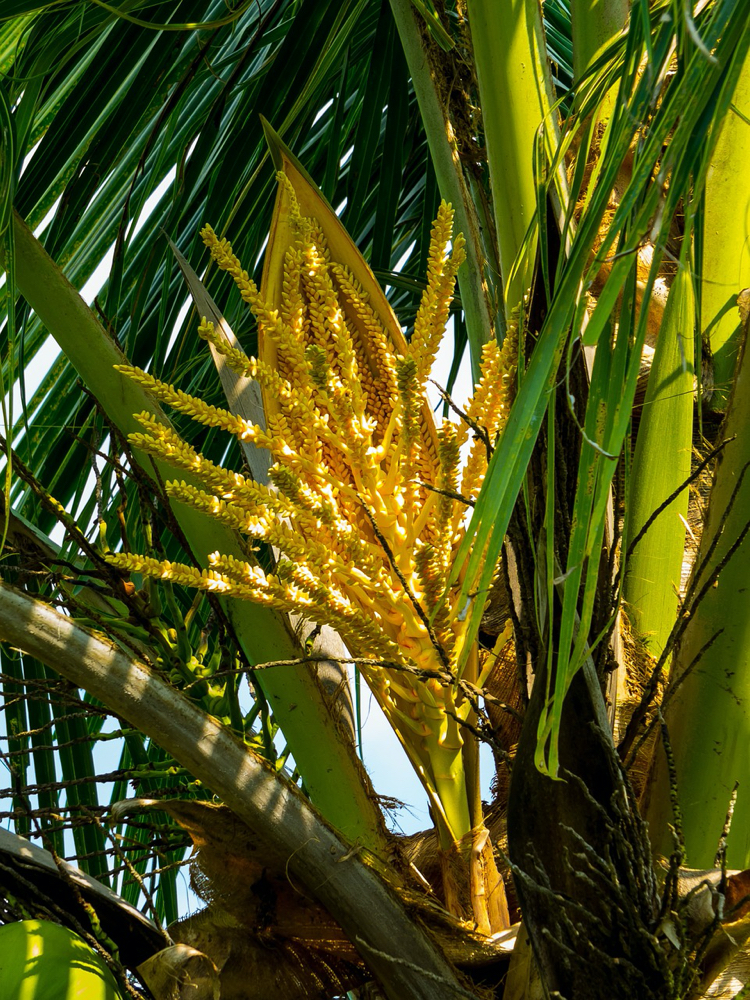Is coconut blossom sugar healthier? There are reasons to doubt that
Is coconut blossom sugar, also called coconut palm sugar, healthier or lower in carbohydrates than normal table sugar? There are claims that it is low carb and, because of its low glycemic index, does not cause blood sugar levels to rise as quickly as other sugars. Let's look at the nutritional value of this type of sugar and whether one of the claims is justified.
What is coconut blossom sugar?

All sugar forms are natural products because they are obtained from plants, e.g. from sugar cane, sugar beet, maple tree, flower nectar (honey), agave plants, rice, etc. The nutritional values are quite similar, with about 20 calories and 5 grams of carbohydrates per teaspoon. Coconut sugar is no exception.

Coconut palm sugar is made from the nectar of coconut blossom buds. The buds are cut open, the juice is squeezed and then boiled down. The result is a caramel-colored sugar that resembles brown sugar. There is also “palm sugar”, a similar sugar that is obtained from other palm types than the coconut palm.
Nutritional values per teaspoon
Calories: 15
Carbohydrates: 4
Dietary fiber: 0
Protein: 0
Fats: 0
Glycemic index of coconut blossom sugar

Some providers of coconut blossom sugar make the health claim that it does not affect blood sugar levels as much as other types of sugar. In fact, there was a much-quoted report from the Philippine Food and Nutrition Institute that the glycemic index of “coconut sugar made by the Philippine Coconut Authority” was calculated to be 35 based on the results of 10 panelists. In fact, that's pretty low. There are, however, a few reasons to question the low number claimed. A similar study by the University of Sydney found a glycemic index of 54, which is only slightly lower than that of normal sugar.

A brand of coconut blossom sugar (sweet tree) has the following disclaimer on the packaging: “Sweet Tree does not believe that the GI is a safe indicator of the” safety “of a sugar in diabetes. In our experience, we have found that coconut sweeteners have been shown to have a GI of only 35, but continued testing shows fluctuations. We believe that this is due to natural variables. Because of this fluctuation, we do not endorse the use of this product by people with diabetes. ” The American Diabetes Association says diabetics should use coconut blossom sugar just like normal sugar. They also find that some of it is mixed with cane sugar and other ingredients.
Is coconut blossom sugar healthier thanks to minerals?

“Coconut blossom sugar is rich in minerals,” proclaim websites that sell it loudly. The claim relates most to its high potassium content. According to the Philippine Food and Nutrition Research Institute, 100 grams of coconut sugar provide a proud 1,030 milligrams of potassium. The recommended daily allowance for an adult is 4700 milligrams. But is sugar really a good way to get potassium? The amount in a teaspoon is 43 milligrams – not that big of a deal, especially compared to most meats and vegetables. For example, 100 grams of most cooked green vegetables contain between 400 and 500 mg of potassium. The potassium content of most types of meat per 100 grams is approximately the same.
The amounts of other minerals in coconut sugar are also negligible. 100 grams of coconut sugar contains 29 milligrams of magnesium (for comparison, 100 grams of cooked spinach provide 76 milligrams of magnesium) and 2 milligrams of zinc.
sustainability

“The most sustainable sugar in the world,” says some websites. There are real environmental problems in cane sugar production that do not occur in coconut sugar production because the tree can produce the sap year after year. According to industry websites, less water is used, and coconut palms can grow on very poor soils, such as sandy beaches. But would it have less of an impact than honey or maple syrup?
Once the coconut blossom is used to make juice, it no longer grows into a coconut. Since coconut farmers may receive more money for coconut sugar, more trees are used for coconut production. This can lead to rising prices for coconut meat, milk and oil.
Conclusion
Coconut sugar is a very expensive type of sugar. It's probably not healthier than any other sugar for people who eat low carb or who have diabetes.

The post Is coconut blossom sugar healthier? There are reasons to doubt that appeared first on Deavita.com | Living ideas, design, hairstyles, make-up, lifestyle, health and beauty tips.





















